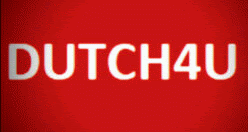Adjectives are words that describe or modify another person or thing in a sentence.
Adjectives usually end with -e: Het goede boek. (The good book), De moeilijke oefening (The difficult exercise), Onhandige jongen (clumsy boy).
There are four situations in which an adjective does not end with –e:
-
- Whenever a noun is neuter , the adjective does not get an –e in the indefinite form. Wanneer het zelfstandige naamwoord onzijdig is, krijgt het bijvoeglijk naamwoord bij de onbepaalde vorm géén uitgang.
Een mooi kind (a beautiful child) – Het mooie kind (the beautiful child) - Whenever the adjective indicates a material, it ends with –en: De houten lepel (the wooden spoon), de koperen ketel (the copper kettle)
- Whenever the adjective is an essentiall part of the combination with the noun, it does not end –e. Example: Het meewerkend voorwerp, het openbaar onderwijs
- Sometimes there’s an adjective without –e inbetween an indefinite article and a noun. In this case the adjective has a special meaning: Een groot staatsman, een talentvol dichter (a talented poet)
- Whenever a noun is neuter , the adjective does not get an –e in the indefinite form. Wanneer het zelfstandige naamwoord onzijdig is, krijgt het bijvoeglijk naamwoord bij de onbepaalde vorm géén uitgang.
